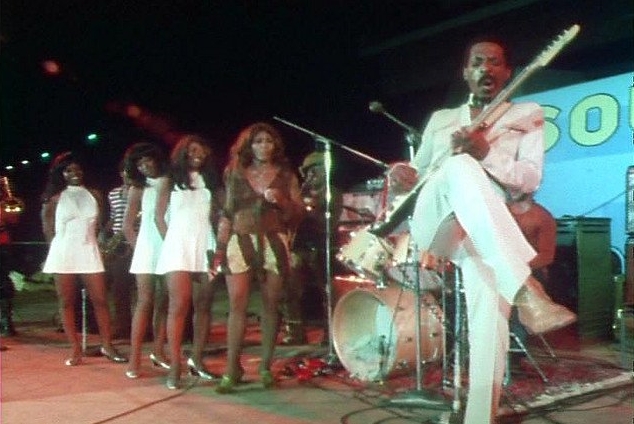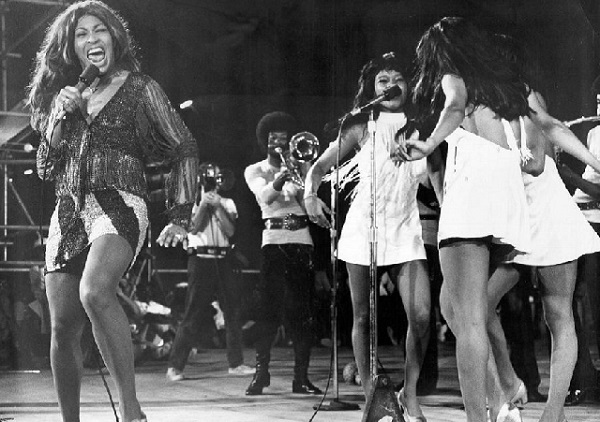On 6th March 1971, Tina and Ike Turner – the African-American husband-and-wife musical duo played an epic 15-hour Independence Day concert dubbed the Soul to Soul Concert in Accra, Ghana, as part of the 14th Anniversary of the county’s independence.
Till date, the concert remains a very important Pan-African moment in history and it should be cherished forever. In 1971, the length of the concert was a big deal. However, this is not what places reputation on the concert. It is the value of people of African descent in America bringing back culture (through music) that is greatly influenced by their African roots to their own people.
Ghana was an important country on the African continent at the time after being the first country south of the Sahara to claim independence from the colonial masters – Britain. The country was 14 years into successful self-rule although that had been marred by three years of military rule which began with the overthrow of the first president of the country, Dr. Kwame Nkrumah, in 1966.
A second republic had started in 1969 with Dr. Kofi Abrefa Busia as prime minister. The Soul to Soul Concert took place in the second year of the second republic.
READ ALSO: Tina Turner, magnetic singer of explosive power is dead at 83

The Turner duo was with Wilson Pickett, also a black-American singer and songwriter. The show also featured the Staples Sisters, Santana (who played with the drummer Willie Bobo,) Roberta Flack, Voices of East Harlem, Les McCann and Eddie Harris, as well as local musicians like Kwaa Mensah, Charlotte Daddah and the Magic Aliens. It was a remarkable event.
African-American musicians and showbiz personalities coming to Africa was not new. Maya Angelou had lived in Ghana several years before this date. She is noted to have even suggested that a festival of black American music be held in Ghana. Also, James Brown, then at the peak of his powers, had just toured Africa, but skipped Ghana. Many Ghanaians were not pleased with that. “Say It Loud – I’m Black And I’m Proud“, had been released four years earlier and people were still yelling the words at each other across streets all over Ghana.
The Soul to Soul Concert was another of those events that cemented the significance of people of African descent in the diaspora returning to the homes of their heritage – a true win for pan-Africanism.

The idea for the concert started in 1970 when a wealthy Hollywood attorney named Ed Mosk, his wife Fern and their son Ted were trying to get a film adaptation of Chinua Achebe’s ‘Things Fall Apart’ off the ground. Ted came up with the idea of a West African Woodstock. The United States has its Woodstocks and Britain has the Isle of Wights. Therefore, the Soul to Soul Concert was the Ghanaian (or if you like, African) answer to these two pop concerts. And, it lived up to its billing.
Hundred of thousands of people from all across the country gathered at the Black Star Square (now known as the Independence square) to bond with the brothers and sisters from the diaspora through the music they brought with them.
In the weeks prior to the show, there were ads in the newspapers urging Ghanaians to turn up at the airport to meet the stars. The ads were instructive to add that most of the musicians were visiting Africa, their roots for the first time. On the day of the show, people started arriving at Black Star Square hours before the advertised start at 3 pm. Due to a series of technical issues, the show eventually started at 5.30 pm and the crowd stayed until almost seven in the morning.
The concert was filmed and released in August 1971. The Soul to Soul film featured extensive excerpts from the concert performances, along with documentary footage of the musicians interacting with local Ghanaians in the days before the show.

The film was eventually restored thanks to a program by the Grammy Foundation that seeks to preserve important films about music, and it debuted again in February 2004 at an event at the Los Angeles County Museum of Art. It was released on DVD on 24 August 2004.
Source: face2faceafrica.com





